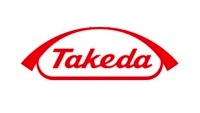
In 2013, an Actos lawsuit brought to jury trial in Los Angeles claimed that Takeda, Asia’s biggest drug manufacturer, had been aware that Actos was linked to bladder cancer as early as 2004. Yet the company did not alert U.S. regulators of this until seven years later, allegedly to protect its $1.6 billion in annual sales.
By April 2013, over 3,000 Actos lawsuits had been filed. That number continued to grow, and in 2014 a Louisiana judge ruled that the company destroyed evidence that would have helped plaintiffs in those lawsuits prove that Takeda hid information about the cancer risks of Actos. The Louisiana jury trial ended with a $9 billion verdict against Takeda and its American partner Eli Lilly & Co. This amount was later reduced by more than 99 percent to $36.8 million.
Actos is not the only diabetes drug on the market that has been linked to cancer. Studies have also associated Merck’s Januvia and Bristol-Myers Squibb’s Byetta with increased risks of pancreatitis and pancreatic cancer. Byetta has additionally been linked to an increased risk of thyroid cancer. The FDA is currently conducting investigations into the risks of using Januvia and Byetta.
Takeda Pharmaceuticals is, unfortunately, one of many companies that appear to be putting profits over patients. Consumer lawsuits can serve to compensate patients for their injuries, as well as to encourage manufacturers to put a greater focus on patient safety.
